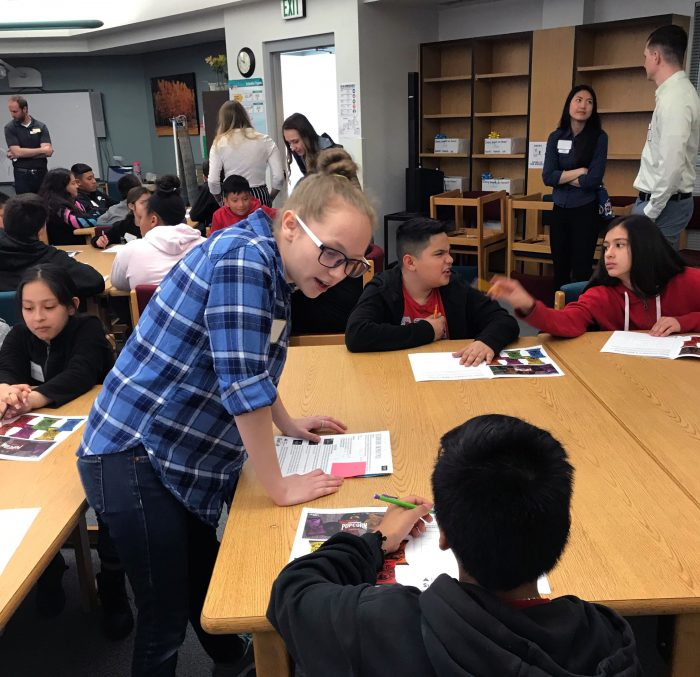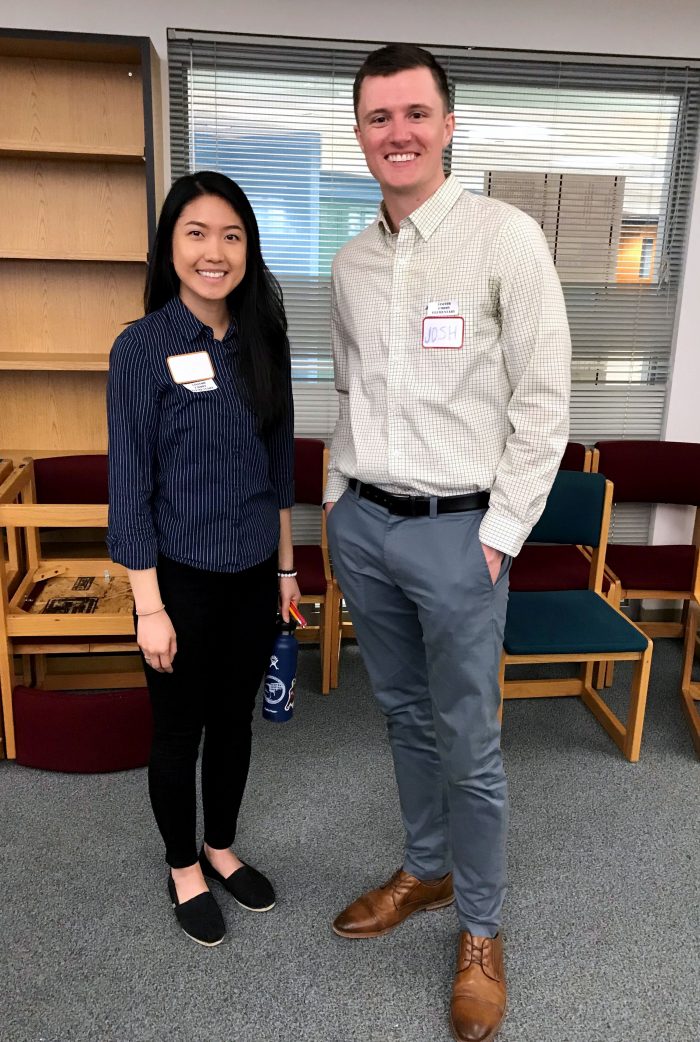
Learning about civic engagement in the University of Colorado at Denver’s (UCD) communications classes have been helpful to Yvonne Jacob, but it wasn’t until she volunteered with Junior Achievement (JA) at the recommendation of her professor that she knew what it was like to make an impact on her community through service learning.
Jacob, along with several other UCD students, spent a full day teaching JA lessons at Emory Elementary and other elementary schools around Denver. As JA volunteers quickly discover, the curriculum is just one part of the experience. Students are excited to be involved and engage in a dialogue with guests in their classroom. The fact that Jacob is a student herself is especially intriguing to elementary students.
“I think seeing older students really allows kids to think about their futures,” Jacob says. “They might think, ‘Oh, I remember this person who came and taught us, I want to be just like them.’ We can be role models.”
JA has a long standing partnership with UCD, with many students volunteering in JA classrooms throughout the school year. Through their JA service learning program, UCD students get a taste of the lifelong impacts they can make in their communities.

“We realized that you can’t ask students to do significant long-term civic engagement until they’ve had a couple introductory experiences, says UCD professor Stephen Hartnett. “So for us, JA works perfectly as that introductory experience. It provides the first step on a longer path of civic engagement.”
Many of the JA volunteers from UCD are only a year or two past high school themselves and find volunteering to be a turning point in their development. Not only do JA volunteers have the chance to empower kids in classrooms, they also discover the impact of mentorship and find their own confidence when stepping into that leadership role.
“A lot of our students come to us as freshmen and sophomores, and they’ve been students their whole lives,” Hartnett explains. “Then suddenly, with JA, they’re the teachers. They’re in front of the classroom. That’s a pretty significant transitional moment in a lot of their lives; to suddenly realize, holy cow, I’m the teacher! A lot of our students recognize in themselves that they’ve reached that point in their development as a human being.”

